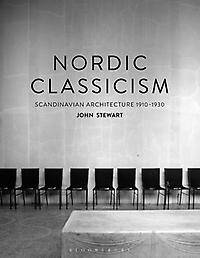
- Afhalen na 1 uur in een winkel met voorraad
- Gratis thuislevering in België vanaf € 30
- Ruim aanbod met 7 miljoen producten
- Afhalen na 1 uur in een winkel met voorraad
- Gratis thuislevering in België vanaf € 30
- Ruim aanbod met 7 miljoen producten
Zoeken
€ 152,95
+ 305 punten
Uitvoering
Omschrijving
Nordic Classicism presents the first English-language survey of an important yet short-lived movement in modern architectural history.
It was through the Nordic classical movement that Scandinavian architecture first attracted international attention. It was the Nordic Pavilions, rather than Le Corbusier's modernism, which generated most admiration at the 1925 World Fair, and it was the Nordic classical architects - including Gunnar Asplund, Sigurd Lewerentz, and Alvar Aalto - who went on to establish Scandinavia's reputation for modern design. Yet this brief classsical movement was quickly eclipsed by the rise of international modernism, and has often been overlooked in architectural studies. The book explores the lives and works of various key contributors to Nordic classicism - with eleven chapters each focussing on a different architect and on one of the period's outstanding works (including the Stockholm Central Library, the Resurrection Chapel, and the Woodland Cemetery). Famous architects and their works are examined alongside many lesser-known examples, to provide a comprehensive and in-depth account. As we approach the centenary of many of the events to which the book refers, now is a timely opportunity to explore the key themes of the Nordic classical movement, its architects, their buildings and the social and cultural changes to which they were responding.Specificaties
Betrokkenen
- Auteur(s):
- Uitgeverij:
Inhoud
- Aantal bladzijden:
- 208
- Taal:
- Engels
Eigenschappen
- Productcode (EAN):
- 9781350044227
- Verschijningsdatum:
- 6/09/2018
- Uitvoering:
- Hardcover
- Formaat:
- Genaaid
- Afmetingen:
- 190 mm x 249 mm
- Gewicht:
- 675 g

Alleen bij Standaard Boekhandel
+ 305 punten op je klantenkaart van Standaard Boekhandel
Beoordelingen
We publiceren alleen reviews die voldoen aan de voorwaarden voor reviews. Bekijk onze voorwaarden voor reviews.











